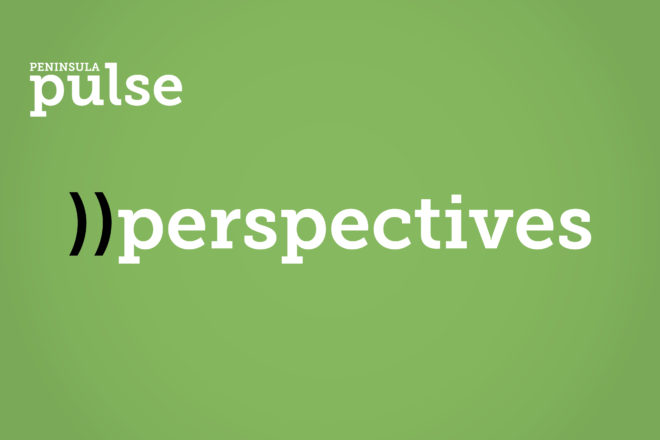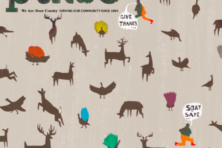Editor’s Note: Giving Thanks for Initiatives That Teach Civil Dialogue
- Share
- Tweet
- Pin
- Share

During this time of deep polarization, we’ve shown a great ineptitude for civil dialogue. We should be grateful for this, as we can’t fix something if we don’t know it’s broken. When all is well with the world, there’s no need to practice how to talk to each other – unless you’re a member of a high school speech or debate team – or learn about conflict resolution, coping mechanisms and stress reduction.
In America, civil dialogue exists as a function of freedom of speech, or “the right to speak, write and share ideas and opinions without facing punishment from the government,” according to one definition – this one from Cornell Law. “The First Amendment protects this right by prohibiting Congress from making laws that would curtail Freedom of Speech.”
Too often, we wield freedom of speech as a defense when something is called into question, using it as a kind of magic spell that automatically removes the incivility from anything we’ve said or written. Its purpose is not to allow incivility in whatever form. We need to learn that.
We can do that now, especially because the midterm elections are done and we have a short reprieve from in-your-face politics. For the time being, we’ve not lined up on either side of the dividing line, shouting our beliefs at one other. We can make good use of this time by learning how to promote citizenship and engage in civil dialogue, talking with one another in nonthreatening ways about politics, religion, economics, social justice and human rights.
The University of Wisconsin System is doing this.
“The political polarization that we all experience has been building for years, and it’s occurring on our university campuses as well,” wrote Jay Rothman, president of the UW System.“But there may be no better place than a university to rededicate ourselves to civil dialogue in an effort to help our students develop into better citizens.”
There are several ways the university is doing this. First, it will conduct a free-speech survey to learn what students understand about the First Amendment, including their rights and responsibilities. The survey will go out in mid-December, sampling anywhere between 2,500 and 7,500 students per campus. The results are expected to be reported in early 2023.
Conducting a survey like this of student populations – the UW System serves approximately 161,000 students across the state – has been recommended in a 2021 report by the Bipartisan Policy Center titled “Campus Free Expression: A New Roadmap.” Although national surveys have been completed, the UW System study is expected to be the first to gather specific data from its own students.
The UW System has also created a website about civil dialogue at wisconsin.edu/civil-dialogue, and it’s creating the Wisconsin Institute for Citizenship and Civil Dialogue to coordinate and share best practices, consider joint programming and discuss ways to elevate civil dialogue and the First Amendment on UW campuses.
In addition, peer-to-peer conversations on challenging topics will be organized among students of different backgrounds and beliefs in an effort to facilitate understanding and build civil dialogue. The conversations will be voluntary and open to the public, and they will include the participation of President Rothman.
Finally, Rothman has approved a $20,000 annual commitment to the Wisconsin Civics Games and its accompanying editorial writing and cartooning contest. I was a judge last year for the Wisconsin Civics Games – a contest for high school students led by the Wisconsin Newspaper Association Foundation – and will be one again this year.
The competition teaches students what it means to exercise citizenship in a democratic republic. Teams that register to participate will be sent study materials prepared by the Wisconsin Policy Forum, and online resources are provided to help students prepare for the competition.
Unfortunately, none of our five Door County high schools have organized teams to participate in this competition. It’s been held only since 2019, so hopefully we can change that. I’ve contacted all five high schools to make them aware of the competition and encourage connecting with me at the email address above. The registration deadline to participate is Feb. 20, 2023. Find more information at wisconsincivicsgames.com.
We need to teach the next generation how to be better citizens than we’ve shown ourselves to be. As the adage goes, teaching others is also the best way to learn.
By accident of birth or repatriation, we live in this country and within this county. We have so much to be thankful for. What better way can we show that thanks than by learning – or teaching – how to practice civil dialogue, how to be the citizens our country requires us to be.
As always, thank you for reading the Pulse. Thank you for your support. We can never do what we do without you.
Happy Thanksgiving.

